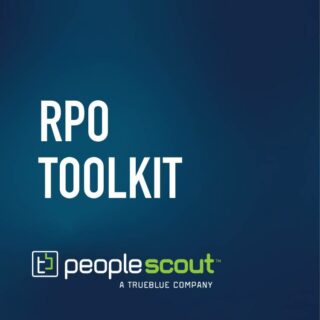In an unprecedented development, the number of open positions now exceeds the number of people looking for work in many parts of the world. In the U.S., job openings numbered at over 11 million in February 2022—five million more vacancies than available workers. It’s a similar situation in the UK, with vacancies outnumbering unemployed people for the first time ever. In the face of these labour shortages, it’s imperative for employers to tap into new talent pools to fill their vacancies and remain competitive.
As employees seek greater workplace flexibility and opportunities to work from home are in greater demand, organisations can now access a new talent pool. Geographic borders are blurred, and many organisations are expanding their recruitment reach by engaging with globally dispersed talent. Enterprises still using a siloed, regional approach to talent acquisition will struggle to reach their recruitment goals in today’s talent landscape. A global talent acquisition strategy will not only help you to compete locally but also win to top talent on a global scale.
Embracing Global Workforce Planning as a Talent Acquisition Strategy
In the U.S., 60% of employees say they enjoy working remotely. In fact, between January 2020 and March 2022, U.S. job postings for remote work went up 319%, with searches exceeding that 458%. Meanwhile, in the UK, remote job postings have increased by 329%, whilst the number of searches has skyrocketed by 790%. So clearly, candidates seeking remote work outweigh the remote opportunities offered.
Some enterprises have been embracing a borderless workforce for many years. Yet, many are still resisting remote employees even though it offers them a number of opportunities, including expanding access to talent, boosting diversity, and increasing brand presence in new markets.
By embracing a location-flexible approach to your workforce planning, you give yourself a greater chance of winning the competition for talent. For example, before the rise of remote work, you may have been looking for 30 roles in your offices in France and Belgium. But now, if you think about it as simply 30 French-speaking roles, you can widen your search area (i.e., French ex-pats living in Australia) and access new remote talent you didn’t consider before. In today’s ultra-competitive talent landscape, dropping geographic limits means reduced time-to-fill, cost-to-fill and ultimately, productivity loss from positions remaining open.
Plus, it can also eliminate the need to open a legal entity in new countries to remain compliant. In our French-speakers example, rather than going through the effort and expense to open an office in France or Belgium to gain French language skills, you could look for French speakers in the countries where you’re already established.
Where Talent Acquisition Strategies Fall Short
Traditionally, companies recruiting in numerous countries or continents have multiple talent acquisition teams, each focused on particular geographies. Even if an organisation is leveraging recruitment process outsourcing (RPO), this typically means using multiple vendors to achieve global coverage. For example, they may use one RPO provider in North America and a different one in Asia.
Whether through different regional talent acquisition teams or regional RPO providers, these disparate teams can lead to disjointed processes, candidate experiences and technology systems—and a lack of visibility into your recruitment program across countries or regions. As the pandemic recovery accelerates and talent continues to become more decentralised, a siloed recruitment model won’t keep up with the future of work and an increasingly geographically disparate workforce that is unattached to traditional offices.
How a Talent Acquisition Program Benefits from the Global RPO Model
According to Everest Group, a growing number of multi-national companies are embracing a global recruitment process outsourcing model, in which one RPO partner takes responsibility for fulfilling positions—or augments your in-house teams—in any country where the company has multiple openings. This helps organisations to gain better insight and control, obtain the best talent at the global level and achieve efficiencies that come from standardisation and centralisation.
Often organisations are unprepared for global recruitment. In fact, 30% of business leaders say their organisation’s top management team lack knowledge of hiring for international markets. Global RPO partners can help you create a recruitment process that is consistent but can still be flexed to account for the cultures and candidate expectations in each market. Leading RPO providers offer global delivery centres that help you expand your geographic reach and hours. Plus, some even offer proprietary technology to support virtual interviews for remote candidates.
A single global RPO partner can boost your talent acquisition strategy by:
- Giving you more agility and allowing you to scale up or down as your hiring needs and market conditions fluctuate.
- Expanding your hiring capacity through on- and offshore recruitment teams
- Providing a wide variety of language capabilities
- Helping you navigate compliance issues and cultural nuances in all countries where you’re hiring
Consolidating under a single RPO partner gives you more control over your global talent acquisition outcomes by eliminating the need for multiple relationships, raising the quality of your hires while saving time and money. The economies of scale gained through a global RPO model can help you achieve your recruitment goals in all your locations. Plus, with work-from-home models becoming more popular, a global talent acquisition program provides an opportunity for organisations to expand across borders to access new skilled talent to accelerate recovery and growth.
To learn more about how global RPO can help your organisation tap into new talent, check out our free RPO guide.




